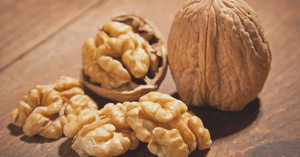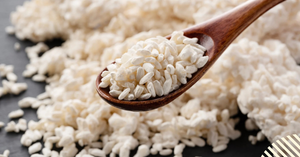When it comes to choosing the best toothpaste for your child, parents are often bombarded with countless options, each boasting unique ingredients. Among the most debated ingredients are fluoride and charcoal. While fluoride has been a mainstay in oral care for decades, charcoal-based toothpastes have gained popularity in recent years, often marketed for their natural properties. But which one is truly the best for your child's dental health? Let's dive into the benefits and drawbacks of both to help you make an informed decision.
Fluoride: The Trusted Defender of Teeth
Fluoride has been the cornerstone of dental care since the mid-20th century, praised for its ability to prevent tooth decay and strengthen enamel. The American Dental Association (ADA) endorses fluoride as an essential ingredient in toothpaste for children and adults alike.
- Strengthens Enamel: Fluoride helps to remineralize tooth enamel, making it more resistant to acid attacks from plaque and sugars in the mouth. This is crucial for children, whose teeth are still developing.
- Prevents Cavities: Regular use of fluoride toothpaste significantly reduces the risk of cavities, a common concern for children who may not yet have mastered proper brushing techniques.
- Safe in Controlled Doses: Fluoride is safe and effective when used in appropriate amounts. Most children's toothpastes are formulated with lower fluoride concentrations to ensure safety.
Despite its many benefits, excessive fluoride intake can lead to dental fluorosis, which causes white spots on the teeth. However, this is primarily a concern if fluoride is ingested in large quantities, such as through swallowing toothpaste. Parents should supervise brushing to ensure kids use a pea-sized amount and spit out excess toothpaste.
Charcoal: The Natural Alternative
Activated charcoal is touted for its natural ability to whiten teeth by absorbing surface stains and toxins. It’s often seen as a more natural alternative to traditional toothpaste ingredients.
- Stain Removal: Charcoal can effectively remove surface stains from teeth, making it a popular choice for those seeking a brighter smile. This is appealing to parents who want to avoid chemical-based whiteners.
- Natural Ingredients: Many parents are drawn to charcoal-based toothpastes because they prefer products with fewer synthetic ingredients.
However, charcoal toothpastes also have significant drawbacks:
- Abrasive Nature: Charcoal is more abrasive than traditional toothpaste ingredients, which can wear down enamel over time. This is especially concerning for children, whose enamel is not fully developed.
- Lack of Fluoride: Most charcoal toothpastes do not contain fluoride, which means they don’t offer the same cavity protection as fluoride-based options. This could lead to an increased risk of decay in children.
- Long-Term Safety: There is limited research on the long-term effects of charcoal toothpaste, especially for young children, making it a less reliable option for daily use.
Which Wins?
While charcoal toothpaste may seem like an appealing natural alternative, fluoride remains the superior choice for children's toothpaste. Its proven ability to strengthen enamel and prevent cavities makes it indispensable in maintaining your child’s oral health. Charcoal toothpaste, while effective for stain removal, is too abrasive for young teeth and lacks the protective benefits of fluoride.
Conclusion
When it comes to your child’s dental health, fluoride-based toothpaste is the clear winner. It offers essential protection against cavities and supports strong, healthy teeth as your child grows. While charcoal toothpaste may be suitable for adults seeking natural whitening, it’s not the best choice for children. By sticking with fluoride, you can ensure your child’s smile stays bright and healthy for years to come.








Be the first one to comment on this story.